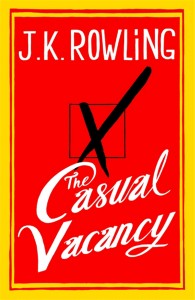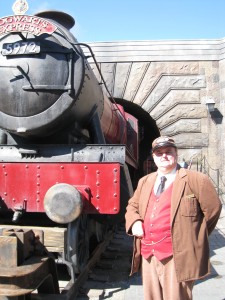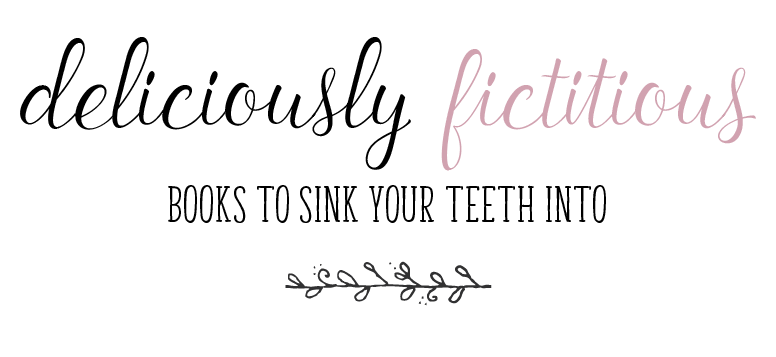
Vital stats:
Author: J.K. Rowling
Publisher: Hachette
Format: Hardcover
RRP: $39.99 (AUD)
My rating 




The story:
When Barry Fairbrother dies unexpectedly in the quaint English village of Pagford, his seat on the local council goes up for grabs. Council chair Howard Mollison wants to use the ‘casual vacancy’ to exorcise Barry’s pet project – council housing estate ‘the Fields’ – from Pagford for good. Pitted against him are Barry’s allies, but while the adults squabble, their children are leading secret lives of their own.
Meanwhile, in the Fields, 16 year-old Krystal Weedon struggles to raise her 3 year-old brother while her mother dips in and out of rehab. As Pagford’s family tensions and hidden secrets come bubbling to the surface, who will take responsibility for Krystal?
How I liked it:
Rowling’s first adult novel has attracted every rating on the spectrum; from “hugely impressive” to “solid [but] unadventurous”, to that most barbed of insults, just plain “dull”.
I found it difficult to rate. This is a book with some seriously stellar qualities, studded with little `irk factors’ that detract from the overall product.
On the stellar side, Rowling is very, very good at getting you involved. Her characters are palpable, her world is vivid, and if her prose is accomplished but not outstanding, her storytelling is none the worse for it. I whizzed through this book, kept picking it up when I should have been doing useful things like making dinner, and found myself thinking about the characters – as real people – long after I’d put it down.
Had it not been written by Rowling, I doubt I would ever have picked up a book that revolved around an empty spot on a local council, and it’s to Rowling’s great credit that she turns this seemingly mundane event into a story that is both gripping and moving. She has a great ability to humanise issues.
The very “adult” world of Pagford is a far cry from Hogwarts, but I didn’t find it as great a leap for Rowling as some have. Reading between the lines, many of the issues that characterise The Casual Vacancy are also explored (in a PG-rated way) in Harry Potter. The press, for example (think Rita Skeeter), racism (remember the “mudbloods”?) and bullying (not just Draco. What about the reason Moaning Myrtle was hiding in the girls’ bathroom when she died?)

Image (c) Deliciously Fictitious
But if the old-world charm of Harry’s world tempts you to think of Rowling as a little bit unwordly, The Casual Vacancy shows she’s nothing of the sort.
She hasn’t just proved she can write for adults. She’s proved she knows about life. Some of her characters swear like sailors. Some steal. They’re on Facebook. They hack computers. They smoke. They truant. They shoot up. They have sex. Setting The Casual Vacancy and Harry Potter side by side, you realise there’s very little Rowling doesn’tknow – and couldn’t write – about.
The Casual Vacancy is many things, but “dull” is not one of them. In fact, its very “non-dullness” has a curious effect: it’s the kind of book you don’t realise has flaws until you put it down.
So it was that I was already halfway through, and enjoying it very much, when I first became aware of what I think is the book’s chief problem; the reason I couldn’t in good conscience give it 4 stars. The world is too detailed. This is a very skilful book that was weakened by Rowling’s evident desire to put so much into it.
At its core this is a book about a girl struggling for a better life against the shackles of poverty, drug dependence, bureaucracy and society’s judgments. Into this mix Rowling throws bullying, rape, teenage angst, self-harm, theft, domestic violence, sexuality, infidelity, ageing, parenting, mental illness… and added to all this, no less than 17 different people from whose perspective we variously see the action.
The result is a tug o’ war for the reader’s attention – and affections. It doesn’t make the novel less interesting, but it does lessen its impact.
Rowling shows great skill in bringing so many characters together, and jumping from one to another without disrupting the flow. I’m just not sure it was necessary. It tended to make the book feel more like a collection of (excellent) vignettes than a novel with one main storyline. Perhaps this is why when Rowling brings everything together at the end, the act feels more like coincidence than design.
There were other little flaws. Long segments in parentheses filling in past background felt like a lazy way to dump information, and the childish tone of the opening pages – reminiscent of another Harry Potter – is strangely at odds with the subject matter (a problem she thankfully rectifies not far in).
Then there is the convenience of Barry Fairbrother. Other characters are constantly thinking to themselves ‘gee it’s a shame Barry’s gone, he was great with [insert random problem here].’ That there would only be one person, even in a town of Pagford’s size, who was any good at anything, seemed contrived. The fact that he was good at everything, and the absence of redeeming qualities in the others, didn’t make the characters unrealistic in isolation, but didn’t ring entirely true when I considered them as a whole.
The result was a book I found enjoyable and engaging right to the final word, but which I failed to find as devastating as Rowling intended me to. The bleakness is felt, but not to your core. In Harry Potter, I bawled when Dumbledore died in Book 6, but while Rowling got sorrow from me at the end of this novel, she didn’t draw actual tears, and I think after 500 pages she probably should have.
~DF
EDIT: You can also read this review on Pages & Pages Booksellers’ reader blog ‘Fan the Pages’, right here. Thanks to Jon Page for posting it!
